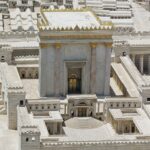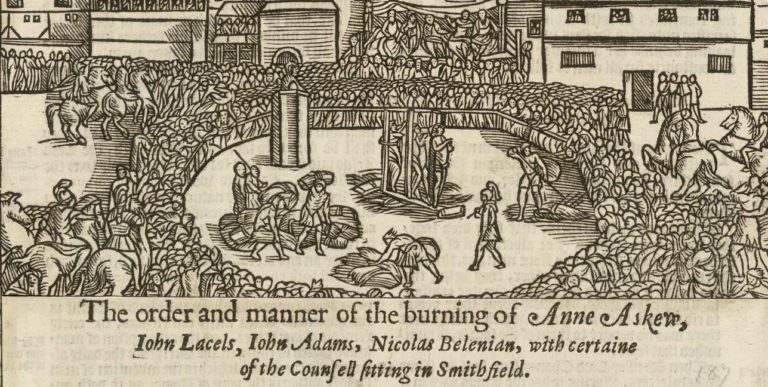Samuel Green has previously written on ‘Learning About Islam’ and ‘Introducing the Gospel to a Muslim’.
In my last article I wrote about how to introduce the gospel to a Muslim and invite them to read the Bible. In this article I will give some ideas about what to do if they invite you to read the Qur’an. This is could very well happen because just as Christians give people the Bible and encourage people to read it, Muslims do the same with the Qur’an. This happened to me when I was working as an engineer.
If you are given a Qur’an, this can be an evangelistic opportunity for just as the apostle Paul quoted Greek philosophers at the Areopagus in Acts 17, so too there are useful parts of the Qur’an that a Christian can refer to when talking to Muslims.
Some Words of Caution
If you are going to refer to the Qur’an, do not pretend to be an expert, you are not. But you can still point to specific verses and ask your Muslim friend to look at them too.
Secondly, you might need to ask if reading the Qur’an will cause another Christian to stumble. We do not want to give the impression that the Qur’an is equally God’s word. Be prepared to explain the reason for your approach to your Christian friends.
Finally, most Muslims do not read the Qur’an, so it may be a learning experience for them too. This is just the same as how many Christians are not very familiar with the whole Bible nor confident to read it by themselves.
Keeping these cautions in mind, here are four ways a Christian can use the Qur’an.
Read the Parallel Accounts of the Bible and the Qur’an Together
Muhammad retold many of the stories that have their origin in the Bible. This allows us to read parallel stories in the Bible and the Qur’an. I recommend that you compare stories where there is general agreement. This will avoid an argument and allow something more important to be shown. For example, you could read about Jonah first in the Qur’an:
And truly Jonah was among the message bearers. Behold! He fled to the full-laden ship, and then cast lots and was among those rejected. Then the fish swallowed him, for he was blameworthy. And had he not been among those who glorify, he would have tarried in its belly till the Day they are resurrected. So We [God] cast him, sick, upon the barren shore. And We caused a gourd tree to grow over him. Then We sent him unto a hundred thousand or more. And they believed; so We granted them enjoyment for a while. (Qur’an 37:139-148)
Then you can read the book of Jonah in the Bible, and ask your Muslim friend what they notice in each account and in comparing the two accounts. You can then make the observation that the Bible has the original book and complete message of the prophet Jonah. If somebody wanted to understand what the Qur’an is referring to, they should first learn the Bible. I would suggest that the only way you could fully understand the Qur’anic account of Jonah is by being familiar with the fuller biblical account.
Here are some more parallel verses you can read:
- Creation: read Qur’an 7:54 then read Genesis 1.
- Job: read Qur’an 21:83-84, 38:41-44 then read Job 1-2 and 40-42.
- The teaching and miracles of Jesus: read Qur’an 3:48-49 then read Matthew 5-7 and 8-9.
- The return of Jesus: this is not in the Qur’an but most Muslims believe it. Raise the subject and read Matthew 24-25.
This exercise gives Muslims the practical experience of seeing the the dependence of the Qur’an on the Bible and the necessity of their becoming familiar with the law, prophets and gospel.
Contrasting the Bible and the Qur’an’s Teaching
The second way of using the Qur’an is to contrast it to the Bible. For example:
- Muhammad is not equal to Jesus: compare 1 Peter 2:21–22 with Qur’an 47:19: “So know (O Muhammad) that there is no god except Allah, and ask forgiveness for your sin and for believing men and believing women.”
- Muhammad did not know what God would do with him: compare John 8:14 with Qur’an 46:9: “Say, ‘I am not something new among the messengers, and I do not know what will be done with me or with you. I only follow what is revealed to me. I am only a warner.’”
- The Qur’an describes paradise as pleasures for men, while the Bible describes humanity in the presence of God: compare Qur’an 56:1-56 with Revelation 21–22.
Raising topics like this can start interesting conversation about what Muslims and Christians believe, or give something for your Muslim friend to go away and think about.
Noticing that the Qur’an Validates the Bible
There are many verses in the Qur’an which validate the Bible. For example:
O you who believe [Muslims], believe in God and His messenger [Muhammad] and in the Scripture which He has sent down to His messenger and in the Scripture which He has sent down previously. (Qur’an 4:136. See also 29:46, 2:136)
The Qur’an teaches that Muhammad and Muslims can read the Bible:
If you [Muhammad] are in doubt about what We send down to you [the Qur’an], ask those who recited the Scripture before you. (Qur’an 10:94)
And in the Qur’an, Christians are asked to give their evidence from their Scripture:
And they say, “None will enter Paradise except one who is a Jew or a Christian.” That is [merely] their wishful thinking, Say, “Produce your proof, if you should be truthful.” (Qur’an 2:111)
These verses can be helpful to show Muslims that they are not meant to dismiss the Bible.[1]
Raising Theological Problems
There are various theological issues that can be noticed within the Qur’an itself. These are places where the Qur’an shows evidence of theology that does not conform to traditional Islamic teaching.
To give one example, in the Qur’an God created Adam with his own hands and then breathed into him the breath of life (Q38:71-75). In exactly the same way the Qur’an says Jesus created life:
I [Jesus] have come to you with a sign from your Lord. I will create for you out of clay the likeness of a bird; then I will breathe into it, and it will be a bird, by the permission of God. (Qur’an 3:49)
It is true that story says that Jesus only did this by God’s permission. However, this is not sufficient to deny Jesus’ divinity because being the creator is a unique attribute of God.[2]
More than this, the story shows that according to the Qur’an God’s nature can connect, work, and be mediated through a human. This shows that incarnation theology is in the Qur’an. You would need to be somewhat confident with some basic systematic theology to discuss this, but if you are, it does raise a good point for a Muslim to consider.
There are other examples of theological problems you might learn about, the more familiar you become with the Qur’an and Islamic theology.
As Christians we want to be sharing the gospel with Muslims from the Bible. However, if Muslims insist that we consider the Qur’an, then we can use that as a starting point for our evangelism.
[1] Some Muslims may refer to Q2:79 to suggest that the Bible is corrupt. But this verse in only rebuking those who sell Scripture in order to make a profit.
[2] Human beings and other creatures may conceive and bring forth new life, in a sense. But this is different to divine creation out of nothing and giving life to lifeless matter.















